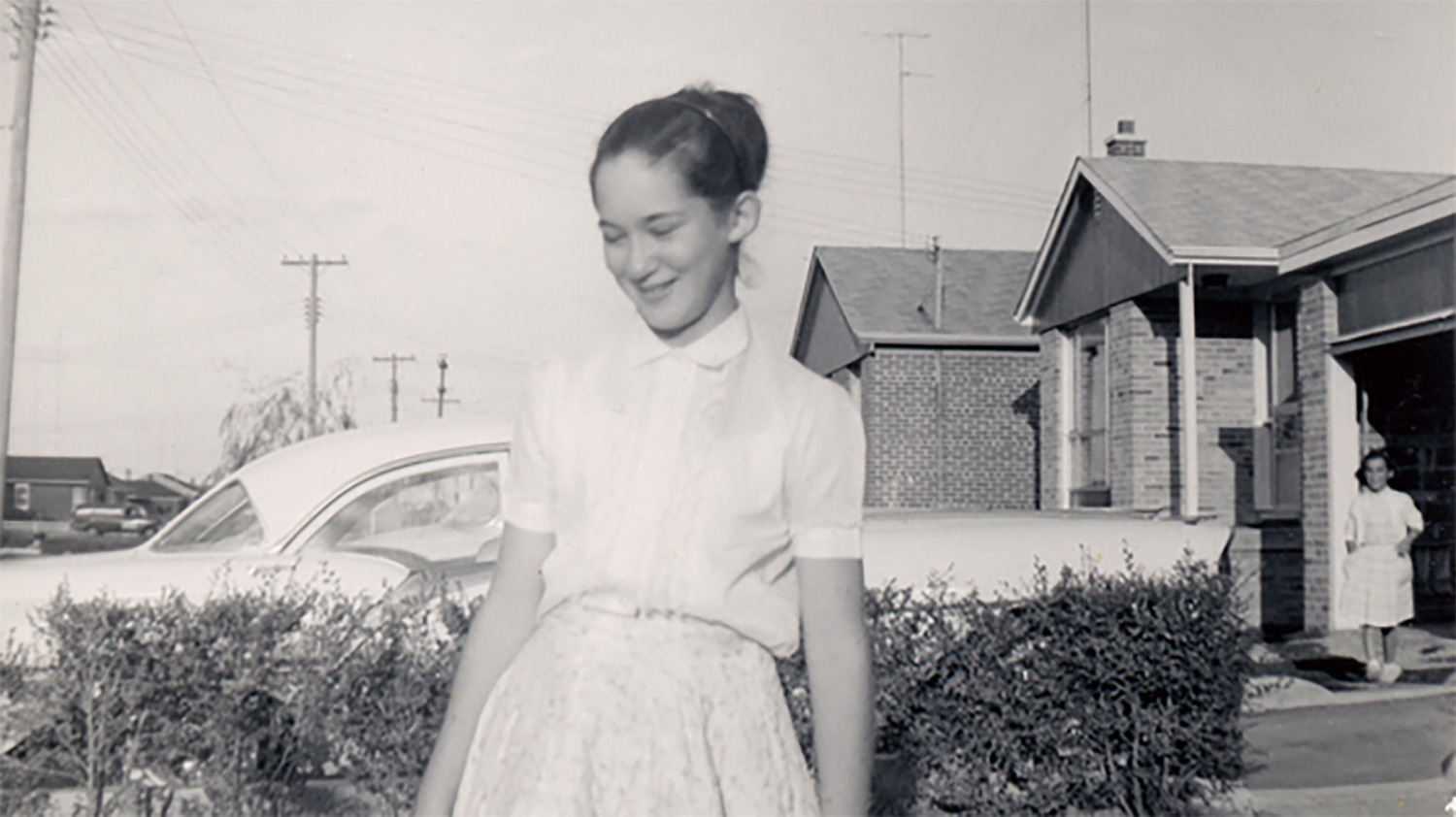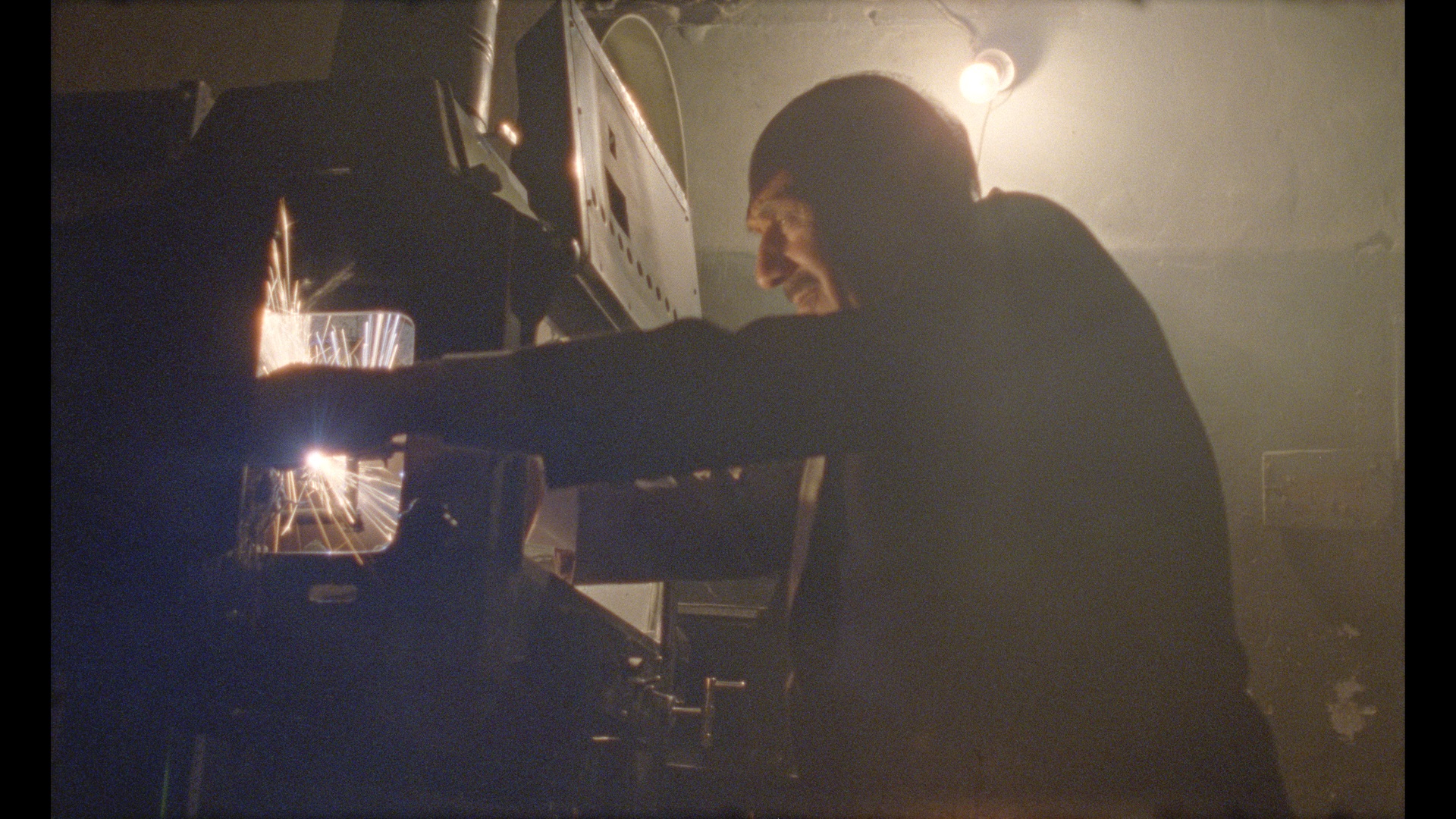Mike Hoolboom remembers the moment he first met Judy Rebick. The experimental filmmaker was visiting their mutual friend filmmaker Velcrow Ripper’s home, and the legendary feminist was discussing the perils of modern hook-ups. “She was in the middle of a very frank riff about online dating,” recalls Hoolboom. “She spoke with such fearlessness, and soon enough her clear-sighted boundary breaking became evident in her political opinions.”
This first meeting, just over a decade ago, led to a close friendship. Many conversations later, in 2017, it struck Hoolboom that Rebick’s inspired and inspiring conversations were something that would make for a beautiful documentary film. “Why aren’t there already half a dozen features about her?” Hoolboom asks. “After years of media interviews, Judy talks in sound bytes and is always camera-ready.” And Rebick, he reports, was game when he said, “The blossoms are coming out in High Park. Would you mind if I filmed you there, even though there will be lots of folks around?” She replied, “Let’s go!”
The three-year endeavour has resulted in Judy Versus Capitalism, an exhilarating hour-long experimental documentary that is a dreamlike trip through various facets of Rebick’s character and storied life as an activist and writer. Hoolboom organizes the film into various chapters (including “Family,” “Weight,” and “Abortion”), moving from each segment with retro footage of Toronto, all the while using Rebick’s narration to tie it together.
At first glance, the collaboration of Hoolboom and Rebick might seem odd. Rebick is one of Canada’s most famous activists, having fought for a broad range of issues, while also authoring books on activism, perhaps most notably Ten Thousand Roses: The Making of a Feminist Revolution (Penguin, 2005), in which she interviews hundreds of activists about the history of Canada’s feminist movement(s). Though she is most famous for her feminist activism, Rebick has been involved with almost every social cause and civil rights struggle imaginable, from Indigenous issues to the labour movement to being a fierce ally of the LGBTQ community. Trace the history of activism over the past half century and Rebick has been involved with just about every milestone. She’s absolutely practical and pragmatic, a straight talker with zero tolerance for nonsense.
Hoolboom has never made a typical film in his life. Since testing positive for HIV in the late 1980s, he has created a slate of films memorable for being entirely brazen and genre-defiant. Hoolboom’s oeuvre is so distinct it once prompted critic Geoff Pevere to suggest the artist “demonstrated a consuming interest in navigating the outer limits of perception, of language, of self, of mechanical reproduction, of bodily sensation and experience.”
Judy Versus Capitalism works, and quite beautifully. The doc manages to convey landmark moments in Rebick’s activist past, while also delving into her more recent, personal revelations of childhood sexual abuse at the hands of her father, something she detailed in her bestselling 2018 memoir, Heroes in My Head. Hoolboom artfully shifts between Rebick reminiscing and his poetic montages, which play out like dreamy flashbacks. It’s a triumphant experimental/documentary hybrid. It is also clear that filmmaker and subject share an investment in a basic concept in feminist philosophy and activism: that the personal is political, and vice versa.
“Judy is a living history and an archive,” Hoolboom says of his subject and friend. “She’s not the only second-wave feminist still standing, but one of the most important. The struggle for abortion rights is a story that needed to be told, again and again, as a reminder of how movements fundamentally change society. Who better to tell that story?”
Hoolboom uses a key bit of footage, a moment that the cameras captured, when abortion-rights crusader Henry Morgentaler was rushed at by a man who was apparently carrying a knife (they turned out to be garden shears). In footage that played repeatedly on nightly newscasts, Rebick stepped in front of Morgentaler, clearly ready to take the knife to protect him. Hoolboom replays this historic moment in spellbinding slow motion, winding it down to what feels like a frame per second. It’s at once excruciating and a testament to Rebick’s steely bravery.
Hoolboom concedes he was struggling with precisely how to structure the film. He had an initial cut, but screened it for a few friends and colleagues including filmmakers Helen Lee and John Greyson and found it wasn’t where he felt it could, or should, be. Then he landed on the idea of breaking the documentary down into chapters. Hoolboom recalls, “It was confused, incoherent, monotonous, and overly long. For many months I did nothing, too depressed to imagine returning to the site of the catastrophe. One day I had the idea to divide the movie up into sections, and to begin each with a moment from Judy’s very public life. Speeches, rallies, even songs. I didn’t know if there was a drawing board, but I tried to go back to it. When a new version emerged, out of the ashes, the response was better.”
Watching Judy Versus Capitalism, one can feel the intimacy of Hoolboom and Rebick’s friendship, something that has clearly informed the film. Hoolboom says making the film became an extension of their regular interactions: “We see each other pretty regularly, and sometimes I would bring a camera. We would shoot some easygoing things, a little at a time. Instead of a meal, it was more of a series of appetizers. It suited the project better, there was less pressure, and Judy was majorly struggling with the fallout from her concussion [an injury she suffered four years ago]. She’s nearly the only person to talk in the movie but we didn’t record much voice, maybe a couple of hours. There was no need because she speaks so succinctly, and with so much emotion.”
For Rebick, the bond with filmmaker made the process that much easier, and honest. “Because I’m so comfortable around Mike, I felt I could be completely honest with him. I was at ease. It would have been an entirely different experience with a filmmaker I didn’t know so well.”
Hoolboom says he was still learning things about Rebick as the filmmaking proceeded. “Judy talks to everyone, even strangers on elevators. When we would run into one of her friends, which happened a lot, she would introduce me by saying, ‘He’s making a movie about me.’ They would always turn to me with a particular look in their eyes, and I could tell that they were seeing the movie I was going to make. I think they all saw their own film, but it wasn’t the one I was making.”
Judy Versus Capitalism had its world premiere at Rotterdam, one of the last festivals to be held before the pandemic set in and put so many such events on hold. “People were touched by the movie,” reports Hoolboom. “Many women got up to ask questions and offer opinions during the question-and-answer session. It’s clear Judy’s voice remains an empowerment machine. As we came out of the theatre, several older women turned to me and said, “We love Judy too!”
Judy Versus Capitalism screens at Hot Docs’ online festival beginning May 28.
Update (3 Oct. 2023): Judy Versus Capitalism is now streaming on Tënk.










